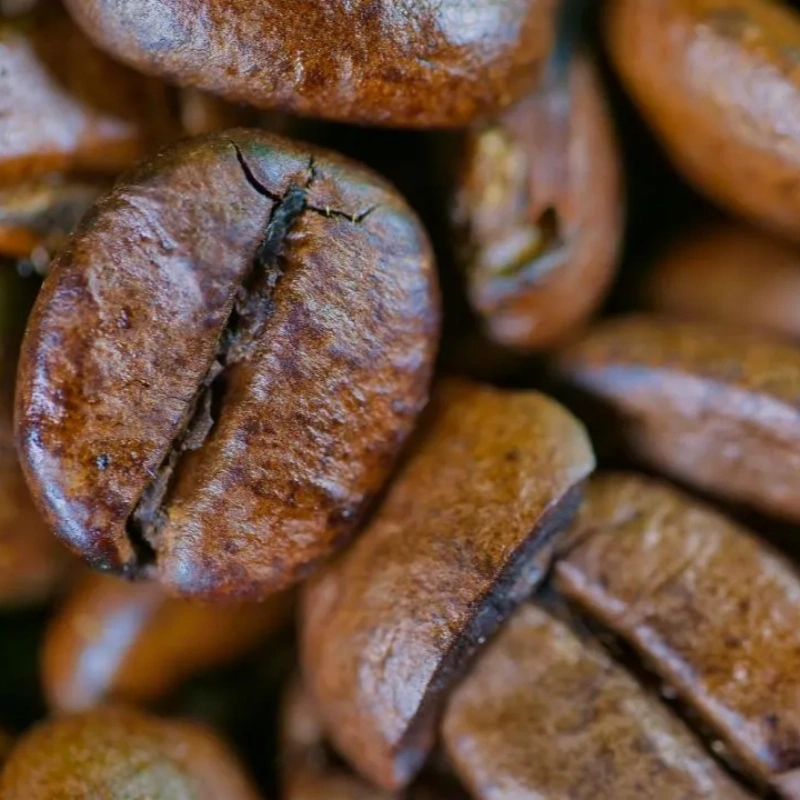Coffee drinkers hotly argued for years about whether freezing roasted coffee beans amounted to sacrilege or redemption. Older wisdom cautioned against use, noting flavor loss and moisture damage dangers. Still, contemporary science and specialty coffee techniques have transformed our knowledge. Indeed, if you follow exact techniques, you can freeze roasted coffee beans absolutely.
Being a packaging pioneer at BN PACK will help to clear the uncertainty and show how the correct packaging turns freezing into the secret preservation tool for coffee.
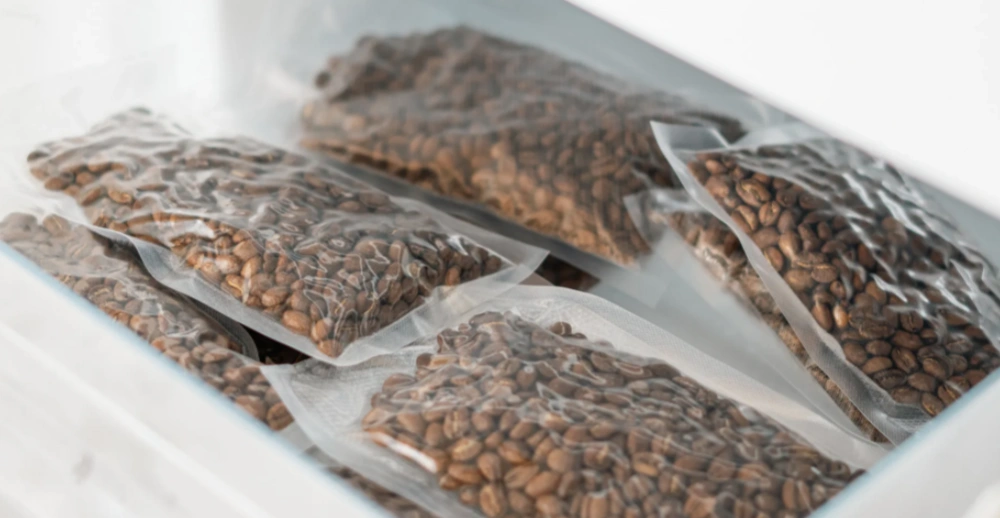
Why Should You Freeze Roasted Coffee Beans?
The traditional wisdom in the coffee industry was clear for decades: never refrigerate your valuable roasted beans. Notes about moisture absorption, flavor loss, and the terrible “freezer burn” tainting your drink repeated. But this guidance sprang from out-of-date methods and a misreading of the actual offender: inadequate handling and packing.
Modern specialty coffee research and the methods of award-winning roasters and baristas have utterly reversed this wisdom. If done right, freezing roasted coffee beans is not only reasonable but also the most efficient way to greatly extend peak freshness and preserve complicated tastes.
Let’s explore the convincing arguments for freezing to take front stage in your toolset for coffee preservation:
Dramatically extend peak freshness: Stop the clock of degradation
One fresh agricultural commodity in steady, fast decline is roasted coffee. Volatile aromatic molecules start to escape (outgassing) from the time roasting ends; oils oxidize and complex sugars break down. Oxygen, light, heat, and moisture all speed this staling.
Even in perfect opaque, airtight containers, at room temperature the absolute peak taste window for most high-quality specialty beans is shockingly short – usually about 2-4 weeks post-roast for filter coffee, and maybe up to 6 weeks for espresso, where some degassing is advantageous. There is thus obvious flattening of flavors.
Freezing puts the brakes on these chemical interactions quite powerfully. Freezing can extend the vivid, complex flavor profile of your beans for 3-4 months, and frequently much longer when packed properly by greatly decreasing oxidation and molecular movement. Kyle Ramage, co-founder of Black and White Roasters and former US Barista Champion, in storing competition-level beans frozen for up to 12 months without appreciable quality loss. This means savoring that limited-edition Gesha or your preferred seasonal mix months after purchase, tasting quite near to its best.
Preserve Rare, Expensive, or Seasonal Coffees: Capture Fleeting Perfection
Specialty coffee often features unique, small-batch lots from specific farms or micro-lots. These coffees can be expensive, seasonally available, or simply a one-time offering. Freezing allows you to truly savor these experiences over time.
Imagine buying a stunning, auction-winning coffee from Panama. You want to enjoy it, but also make it last. Freezing portions allows you to stretch that enjoyment over months, pulling out a small bag every few weeks, rather than feeling pressured to consume it all within a rapidly closing freshness window and potentially wasting some to staleness.
Forward-thinking cafes like La Cabra Coffee have even implemented “freezer menus,” offering customers rare or past-season coffees that have been meticulously preserved at their peak flavor through freezing. For the home enthusiast, freezing prevents the common scenario of having half a bag of excellent coffee slowly lose its magic over the second week.
Myth busting: addressing the “Freezer Stink” fear
The main cause of the “freezer taboo” is horrible old habits: throwing fragrant meals beside an open paper bag or fragile plastic bag of beans into the freezer. Coffee easily absorbs ambient smells and is hygroscopic—that is, it absorbs moisture. Typical home freezer open bags taste like frozen peas, leftover pizza, or worse (“leftover chicken enchilada coffee,” anyone?).
The key element is airtight, odor-barrier packing. Techniques (vacuum sealing bag) and modern, high-barrier packaging materials (such as aluminum foil bag ) totally separate the coffee from the freezing environment. No smells in, no valuable scent out. When done right—that is, with portioning, no repeated thawing or freezing—the taste stays perfect.
Leading authority on coffee research and standards, the Specialty Coffee Association (SCA), clearly says: “Freezing is the single most effective method of delaying spoilage” for roasted coffee, therefore directly contradicting the previous misconceptions. Extensive sensory and chemical analysis behind this support.
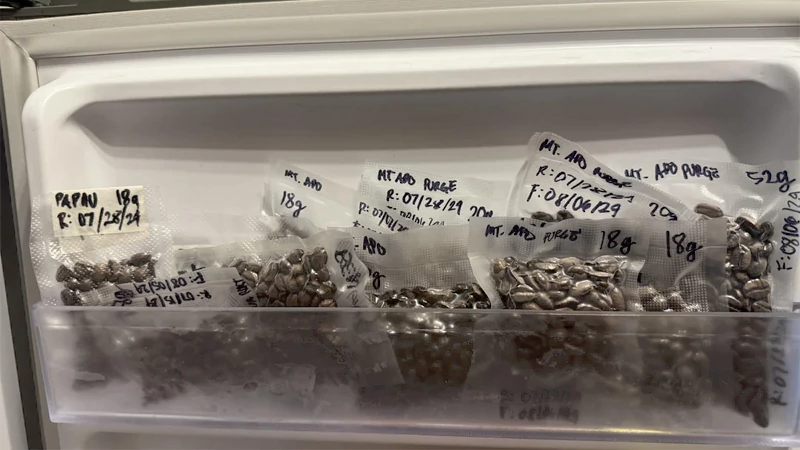
What’s the Best Way to Store Coffee Beans for Lasting Freshness?
From their “four enemies,” air, moisture, heat, and light, roasted coffee beans are under continual attack. Whether for daily usage or long-term freezing, winning the war on freshness calls for strategic storage. Here is how you guard your beans:
For Everyday Use (1–3 Weeks)
- Keep Beans Whole: Grind only before brewing. Pre-ground coffee loses volatile aromatics 10x faster.
- Valve-Sealed Bags: Use resealable bags with one-way degassing valves (like BN PACK’s stand-up pouches). These release CO₂ without letting oxygen in.
- Airtight & Opaque Containers: Transfer beans to vacuum canisters (e.g., Fellow Atmos) or stainless steel jars. Avoid clear glass—light degrades oils.
- Cool, Dark Location: Store away from ovens, dishwashers, or windows. Ideal temp: 18–22°C (64–72°F).
For Freezer Storage (3–12+ Months)
- Use thawed beans within 5–7 days.
- Portion Control: Divide large batches into 1–2 week servings. Prevents repeated thawing/refreezing.
- Pre-Freeze Prep:
- Unopened Bags: Squeeze out air, tape the valve shut, freeze immediately.
- Bulk Beans: Vacuum-seal portions using BN PACK’s high-barrier freezer bags (OTR <0.5 cc/m²/day).
- Thawing Protocol: Never open cold bags! Let portions reach room temperature (1–2 hours) before opening to avoid condensation.
Critical Mistakes to Avoid
- ❌ Refrigerators: Humidity causes condensation, turning beans soggy. Odor absorption is guaranteed.
- ❌ Grinder Hoppers: Not airtight. Exposes beans to oxygen, heat, and light—staling oils in days.
- ❌ Reused Food Containers: Residual smells (spices, oils) taint coffee.
- ❌ Freezer Bags Without Sealing: Thin polyethylene bags allow freezer burn and odor migration.
💡 BN PACK Pro Tip: For commercial bulk freezing, pair our aluminum-laminate barrier bags with oxygen absorbers. For eco-conscious brands, our certified compostable PLA bags (ASTM D6400) block moisture/odor while reducing landfill waste.
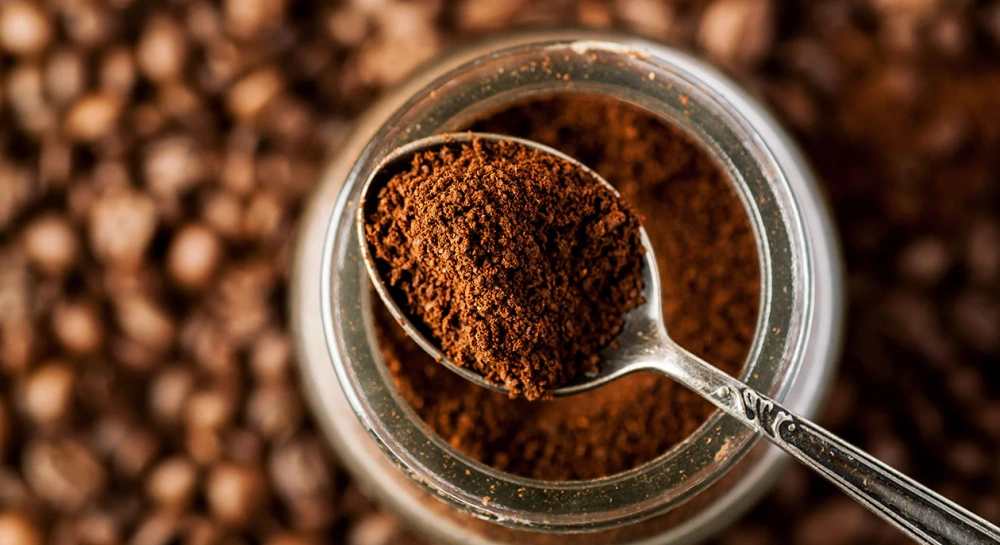
Grinding Frozen Beans vs. Room Temperature Beans: What’s Better?
Grinding coffee straight from the freezer isn’t just viable—it’s scientifically advantageous for flavor and consistency. When beans are frozen (ideally below -18°C / 0°F), their cellular structure becomes more brittle. This allows burr grinders to fracture them cleanly into remarkably uniform particles, minimizing the production of ultrafine “dust” (fines) and coarse boulders.
The result? A balanced extraction where flavors develop evenly, reducing bitterness in filter brews and enhancing clarity in espresso. By contrast, room-temperature beans—especially in a warm grinder—soften under friction heat. This causes irregular fracturing, where burrs crush rather than cleanly slice the beans, generating inconsistent particles that lead to uneven extraction, muddy flavors, and wasted coffee.
Temperature stability is another critical benefit. Frozen beans counteract the heat generated during grinding, maintaining a cooler grind chamber. This prevents volatile aromatics from evaporating prematurely and protects sensitive oils from oxidation. For espresso, this thermal consistency translates to predictable shot times and richer crema. However, one non-negotiable rule applies: Always grind beans while still frozen. Never thaw before grinding—condensation from temperature shifts hydrates the coffee, accelerating staling and dulling brightness. For espresso enthusiasts, a brief 2-minute rest post-grinding allows moisture equilibrium before tamping.
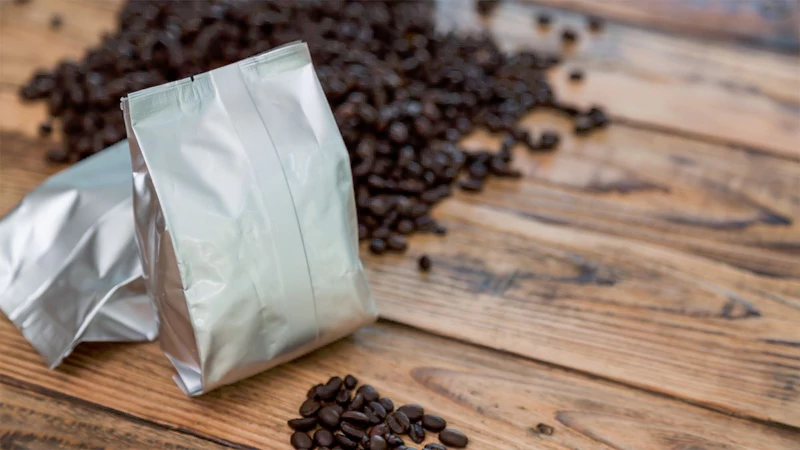
What Packaging Do You Need for Freezing Coffee?
Standard coffee bags catastrophically fail in freezing conditions, making specialized packaging non-negotiable for preserving flavor. When coffee freezes, temperature fluctuations and humidity create micro-environments that accelerate degradation if barriers are compromised. Thin polyethylene bags permit oxygen ingress (>50 cc/m²/day OTR), causing rancidity, while paper or low-grade plastics absorb freezer odors and introduce moisture through microscopic pores. This leads to “freezer burn” – ice crystals dehydrating precious coffee oils and destroying aromatic complexity. BN PACK’s engineered solutions solve this through triple-layer defense:
- Metalized Barrier Films (PET/Al/PE or recyclable metallized PP) block 99.9% of oxygen (OTR <0.5 cc/m²/day) and UV light, while preventing odor migration.
- Freezer-Optimized Valves that seal shut below 0°C, unlike standard valves that leak humid air inward when cold.
- Structural Integrity at sub-zero temperatures, ensuring zippers/seals don’t brittleness.
For eco-brands, certified compostable PLA bags (ASTM D6400) with cellulose barriers offer comparable protection against moisture/oxygen. Pair with vacuum-sealing or oxygen absorbers for 12+ month freshness. Flat-bottom stand-up pouches with tear notches ensure practical usability.
Conclusion
Freezing roasted coffee beans is not a myth—it’s the gold standard for preserving peak flavor, scientifically validated by roasters and baristas worldwide. When executed precisely, it extends freshness from weeks to 3–12+ months, letting you savor rare, seasonal, or bulk coffees at their vibrant best. The critical pillars? Portion control, flawless packaging, and disciplined thawing.
Temperature mastery is non-negotiable:
- Grind beans straight from the freezer for uniform particle size and balanced extraction.
- Never thaw before grinding—condensation sabotages flavor.
- Room-temperature storage is only viable for short-term use (≤3 weeks).
Packaging is your secret weapon. Generic bags invite oxygen, moisture, and odors, turning precious beans stale. BN PACK’s engineered solutions—high-barrier metallized films, freezer-sealing valves, and certified compostable/recyclable materials—create an impervious shield against coffee’s enemies. This transforms freezing from a gamble into a precision preservation system.
Embrace the future of coffee freshness:
→ Freeze fearlessly to reduce waste and elevate every brew.
→ Choose packaging intelligently—your beans (and taste buds) deserve it.
